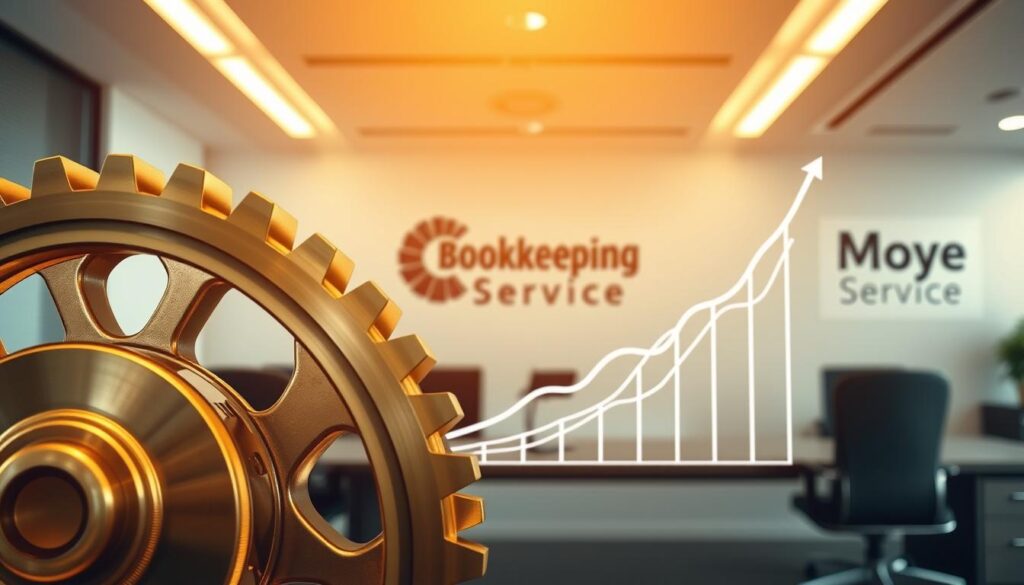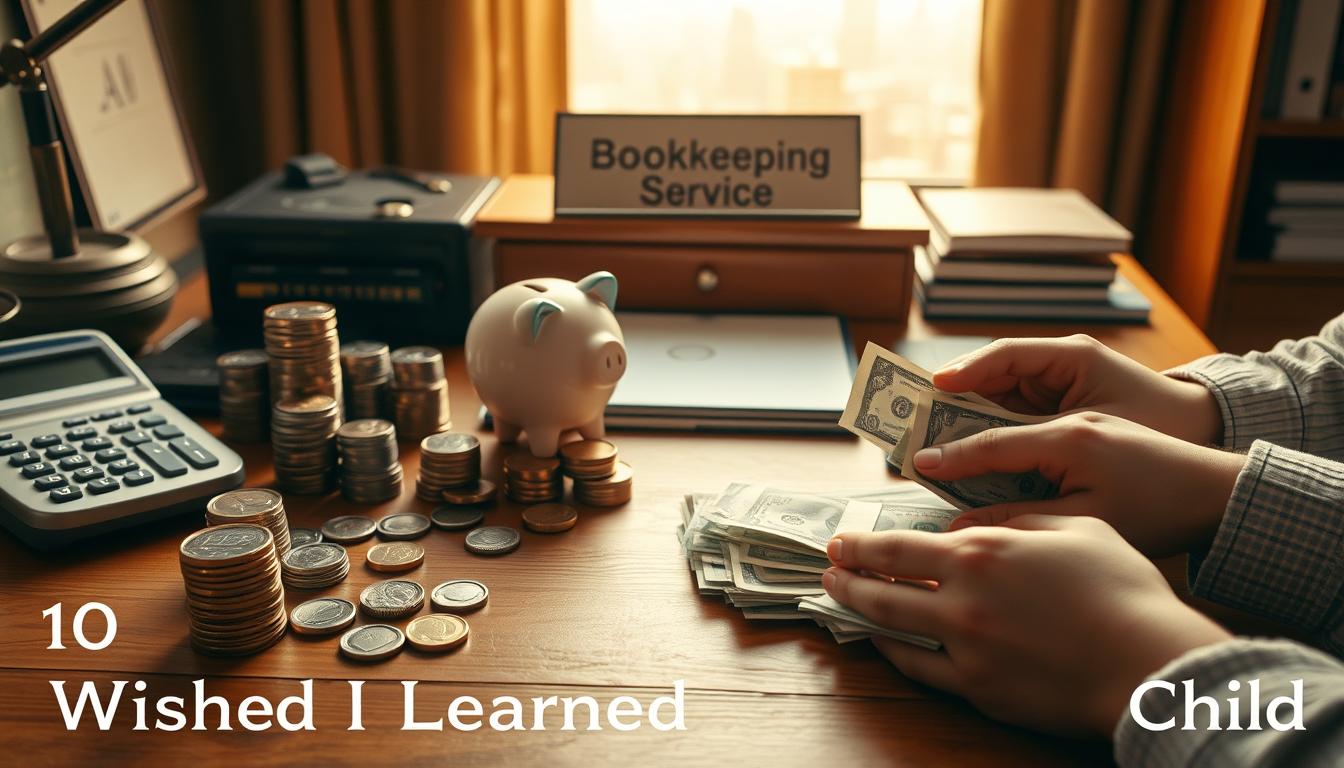Affiliate Disclosure: Please note that this post may contain affiliate links. If you click on a link and make a purchase, we may earn a small commission at no extra cost to you. Thank you!
In hindsight, I wish I had learnt money management sooner because I think it would have changed the course of my life. As a kid, I didn’t grasp the importance of saving or the effects of inflation. These are lessons I had to learn the hard way, and they’ve impacted my attitude toward finances today.
Knowing about money at a young age is foundational to having financial freedom later in life. But many of us skipped these basic teachings in our childhood. Basic errors — such as allowing cash to sit stale in a bank account — can cost you, over time. Inflation slowly whittles away at the value of cash, and without sound savings habits it’s easy to lag
Today, I’d like to share the /money lessons I wish I’d known when I was a kid. From the value of thrift to the risks of impulsive spending, these lessons can help you avoid making the same mistakes I did. It’s timeless and universal, whether you’re teaching a child or improving your own habits.
Key Takeaways
- Start them young: Teach your kids about money to instill healthy financial habits.
- Next, it is important to understand inflation and historical costs of our savings.
- Leaving money idle can lead to significant financial losses over time.
- Developing a savings habit is key to long-term financial freedom.
- Learning from financial mistakes is a valuable life lesson.
An Introduction to My Money Journey

My journey with money began in my early twenties, a path filled with trials and errors that shaped my financial wisdom. Reflecting on those days, I realize how crucial it was to grasp the basics of budgeting and saving early on.
Why I’m Sharing My Personal Experience
I had to share my personal experiences because everyone especially kids deserve a solid foundation for financial literacy. Teaching a child about money at an early age gives them tools to make informed decisions so they can avoid the struggles of poor financial choices. It’s about having a goal to make sure they appreciate the value of money and the need to budget.
The Importance of Learning Early
One of the most impactful moments in my financial journey was when I had to make sure I didn’t overspend during college. It taught me the hard way that leaving money idle can lead to missed opportunities. This experience underlined the importance of teaching kids about money early, helping them avoid the pitfalls I faced. By instilling these habits, we set them on a path to financial freedom and a brighter future.
Understanding Inflation and the True Value of Cash

Inflation is a silent force that quietly reduces the purchasing power of your money over time. It’s a concept that many people, especially kids, don’t fully understand until they experience it firsthand. Let me explain it in simple terms: imagine you had $100 last year, and today that $100 can only buy what $90 worth of goods and services could a year ago. That’s inflation at work.
How Inflation Impacts Everyday Spending
One of the most noticeable effects of inflation is the rising cost of everyday items. For instance, if a loaf of bread costs $2 today, it might cost $2.50 next year due to inflation. This steady increase in prices means that the same amount of money buys fewer goods and services over time. Teaching this concept to a child helps them understand why saving and investing are crucial to maintaining their purchasing power.
Here’s a real-life example: if you keep $1,000 in a bank account that earns no interest, inflation could erode its value by $50 over a year. By moving that money into an investment that grows faster than inflation, you can preserve its value and even increase it over time.
Smart Banking Practices in a Changing Economy
So, how can you protect your money from inflation? The key is to avoid letting your cash sit idle in a low-interest bank account. Instead, consider moving it into more productive investments, such as stocks, bonds, or even a high-yield savings account. These options can help your money grow at a rate that keeps up with or even outpaces inflation.
For example, if you have $1,000 in a savings account earning 2% interest annually, you’ll have $1,020 next year. But if inflation is 3% over the same period, your purchasing power has still decreased. This is why it’s important to aim for investments that offer returns higher than the inflation rate.
Teaching kids about inflation and the importance of smart banking can help them develop healthy financial habits from a young age. By understanding how inflation works, they can make better decisions about their money and avoid the pitfalls of letting it lose value over time.
Remember, inflation is a natural part of the economy, but it doesn’t have to erode your family’s financial stability. By taking proactive steps to grow your money and teaching your kids about the importance of smart investing, you can protect your financial future and ensure that your hard-earned money retains its value for years to come.
Good Debt vs Bad Debt: Finding Balance

Understanding the difference between good debt and bad debt is a crucial money lesson that can shape your financial future. Good debt, such as mortgages or student loans, can act as a financial tool to build wealth over time. On the other hand, bad debt, like high-interest credit card balances, can trap you in a cycle of spending and debt.
Using Debt as a Financial Tool
Debt isn’t always bad. When used wisely, it can help you achieve long-term goals. For example, taking out a mortgage to buy a home can be a smart investment, as real estate often appreciates in value. Similarly, student loans can pay off in the form of higher earnings over your career. The key is to ensure that the debt you take on aligns with your financial goals and has a reasonable interest rate.
Avoiding the Pitfalls of Credit
Credit cards can be a double-edged sword. While they offer convenience and rewards, they can also lead to overspending. I learned the hard way that carrying credit card balances can harm your credit score and lead to financial stress. Paying off balances in full each month is a good way to avoid falling into this trap and keep your credit score healthy.
By understanding how to use debt wisely, you can avoid unnecessary financial pitfalls and work toward a more stable future. Remember, debt should be a tool to help you grow, not a burden that holds you back.
Navigating the World of Cryptocurrency

My curiosity about cryptocurrency sparked a few years ago when I first heard about Bitcoin. Intrigued by its potential, I decided to explore this new frontier of digital money. This journey led me to platforms like Coinbase, which offered educational rewards that made learning about crypto more engaging and accessible. I also read a good number of books such as Cryptocurrency All-In-One for Dummies which helped me with the start-up knowledge.
My First Steps into Crypto Investing
I remember opening my first crypto wallet on Coinbase. It was both exciting and intimidating. The platform’s simple interface and rewards for completing educational tasks made it easier to grasp the basics of blockchain and digital currency. This experience taught me the importance of starting small and educating myself before making any significant moves.
Why Digital Currency Matters for the Future
Digital currencies are reshaping how we think about money and financial transactions. They offer a decentralized alternative to traditional banking, which can be especially empowering for younger generations. As more businesses begin to accept crypto, it’s clear that understanding this technology is crucial for both kids and adults aiming to stay financially literate.
By taking the time to learn about cryptocurrency, we can better prepare ourselves and the next generation for the evolving financial landscape. Whether it’s through platforms like Coinbase or staying updated on the latest trends, continuous learning is key to navigating this exciting and rapidly changing world. Keeping your Digital currency safe is very important, check out this Crypto Cold Storage Wallet Bitcoin Hardware Wallet.
Invest Early and Embrace the Power of Compound Interest

Starting to invest early is one of the most powerful money decisions you can make. Compound interest can turn even small, regular investments into significant wealth over time. This concept has been a game-changer in my financial journey.
Simple Strategies to Start Investing Young
Compound interest works by earning interest on both the initial investment and any accumulated interest from previous periods. Over time, this creates a snowball effect that grows your money faster and faster. For example:
| Investment | Annual Interest Rate | Time (Years) | Final Amount |
|---|---|---|---|
| $1,000 | 5% | 10 | $1,628.89 |
| $500/month | 7% | 20 | $500,000+ |
Starting early, even with small amounts, can lead to impressive results. For instance, investing $500 a month at 7% interest over 20 years can yield over $500,000. This shows how time and consistent investing can create substantial wealth.
Teach kids to start small and be consistent. Whether through a savings account or a retirement fund, it can even be through a Saving Vault which can be fun for younger kids. The key is to let time work in their favor. Encourage them to avoid waiting until they have “more money” and instead make regular investing a habit.
By embracing compound interest, you can help your child build a strong financial foundation. It’s not just about the money they save, but about the time they give their investments to grow. Start early, stay consistent, and watch their money work for them.
Cultivating a Positive Money Mindset
Adopting a positive mindset about money has been transformative for me. It’s not just about knowledge—it’s about how we think and feel about wealth and financial decisions. This shift has helped me make better choices and build healthier habits.
Overcoming Limiting Beliefs About Wealth
For years, I held beliefs that money was scarce and hard to earn. These beliefs held me back. Recognizing and challenging them was a crucial step. As Leo Babauta suggests, shifting our mindset can lead to growth.
One key lesson: debt isn’t always bad. For example, a mortgage can build long-term value. Understanding this changed how I view financial decisions.
Embracing Healthy Financial Habits
Healthy habits start with small, intentional practices. Daily choices, like avoiding impulse purchases, have helped me build better savings and budgeting routines. These habits are the foundation of my financial progress.
“The way to get started is to quit talking and begin doing.” – Walt Disney
This quote reminds me that action, not just intention, leads to results. A positive mindset, combined with consistent habits, is powerful.
In conclusion, a positive mindset and healthy habits are as important as financial knowledge. They help us avoid pitfalls and build a brighter financial future.
10 Money lessons I wished I learned as a child
Looking back, I often wonder how differently my life would have turned out if I had learned about money management earlier. As a child, I didn’t understand the value of saving or the impact of inflation. These were lessons I had to learn the hard way, and they’ve shaped my approach to finances today.
Real-Life Examples and Takeaways
One of the most impactful moments in my financial journey was when I had to make sure I didn’t overspend during college. It taught me the hard way that leaving money idle can lead to missed opportunities. This experience underlined the importance of teaching kids about money early, helping them avoid the pitfalls I faced.
| Investment | Annual Interest Rate | Time (Years) | Final Amount |
|---|---|---|---|
| $1,000 | 5% | 10 | $1,628.89 |
| $500/month | 7% | 20 | $500,000+ |
Starting early, even with small amounts, can lead to impressive results. For example, investing $500 a month at 7% interest over 20 years can yield over $500,000. This shows how time and consistent investing can create substantial wealth.
By understanding these lessons, we can help the next generation build a strong financial foundation. It’s not just about the money they save, but about the time they give their investments to grow. Start early, stay consistent, and watch their money work for them.
Teaching Kids the Fundamentals of Money
Helping children grasp money basics early sets them up for future financial success. It’s about giving them practical tools and hands-on experience to manage their finances wisely.
Giving Kids Control Over Their Finances
A great way to start is by giving kids control over small sums. Whether it’s their allowance or gift money, letting them make decisions helps them understand the value of money. For example, you can provide a goal for them to save a portion of their allowance each month. This hands-on approach teaches them to prioritize and make smart financial choices.
Setting Savings Goals and Budgeting Early
Teach kids to set clear savings goals and create a simple budget. Encourage them to allocate their money into categories like saving, spending, and giving. For instance, they can put 50% into savings, 30% for expenses, and 20% for charitable giving. Tracking their progress on a chart or using a piggy bank can make the process fun and educational.
By involving kids in everyday financial decisions, they learn valuable lessons about budgeting and responsible spending. These early experiences lay the groundwork for a lifetime of financial literacy and independence.
Smart Spending, Frugality, and Long-Term Investments
Smart spending and frugality are essential for building a strong financial foundation. By avoiding impulse purchases and focusing on meaningful investments, you can create a brighter financial future. This section explores strategies for smart spending, the importance of avoiding impulse buys, and how investing in yourself can lead to long-term growth.
Avoiding Impulse Purchases
Impulse buying can quickly derail even the best-laid financial plans. It’s easy to get caught up in the moment and spend money on things you don’t truly need. To avoid this, practice mindful spending by comparing prices and planning purchases in advance. For example, before making a significant purchase, ask yourself if the item aligns with your long-term financial goals. This simple step can help you avoid unnecessary expenses and stay on track with your budget.
Investing in Yourself for Future Growth
Frugality opens the door to meaningful investments in yourself. Consider using extra funds to enhance your education or career development. For instance, investing in a course or certification can lead to higher earnings and greater financial stability. Personal growth investments often yield long-term returns, making them a smart use of your money.
Financial discipline is crucial when planning for future needs. By avoiding impulse purchases and investing wisely, you can create a stable and secure financial future. Remember, smart spending and frugal habits are key to achieving your long-term financial goals.
Reflecting on My Financial Future and Next Steps
As I look ahead to my financial future, I’m focused on building a legacy that will provide security for my family and opportunities for the next generation. Planning for retirement is a key priority, and I’m exploring ways to create passive income streams that will support my long-term goals.
Continuous learning has been a cornerstone of my financial journey, and I plan to stay updated on the latest trends and strategies. By adapting my approach as the economy evolves, I aim to make informed decisions that align with my vision for the future.
I encourage everyone to take charge of their financial plans and consider seeking advice from professionals. Learning from others’ experiences can provide valuable insights and help you avoid common pitfalls on your own financial journey.
Teaching kids about money management is another important step I’m committed to. By instilling healthy financial habits in children, we can empower them to make better decisions and build a secure future from an early age.
Affiliates:
Echo Bundle: Echo Dot Limited Edition Marvel Iron Man Stand
Echo Dot 5th Gen Smart Speaker




